Norbert M. Linke Joins UMD Physics
- Details
- Published: Wednesday, February 06 2019 15:04
Norbert M. Linke has joined the Department of Physics as an assistant professor. He has been a member of the department since 2015, first as a post-doc and then as a research scientist at the Joint Quantum Institute. Working in the group of Chris Monroe, he led a project that turned a physics experiment into a programmable quantum computer. This work helped establish trapped atomic ions as a leading contender in the quantum computing realm, and produced the first cross-platform comparison of two quantum computers in 2017.
Linke was born in Munich, Germany, and graduated from the University of Ulm, Germany. He received his doctorate at the University of Oxford, UK, working on micro-fabricated ion-traps, high-fidelity quantum gates, and microwave-addressing of ions under David Lucas.
His new group at UMD continues to work on quantum applications with trapped ions, implementing more sophisticated algorithms, but also expanding to simulations of new and unusual quantum dynamics involving the ions' motional degrees of freedom. Additionally, his lab has launched a new project to realize long-distance quantum communication using trapped ions and near-telecom photons.
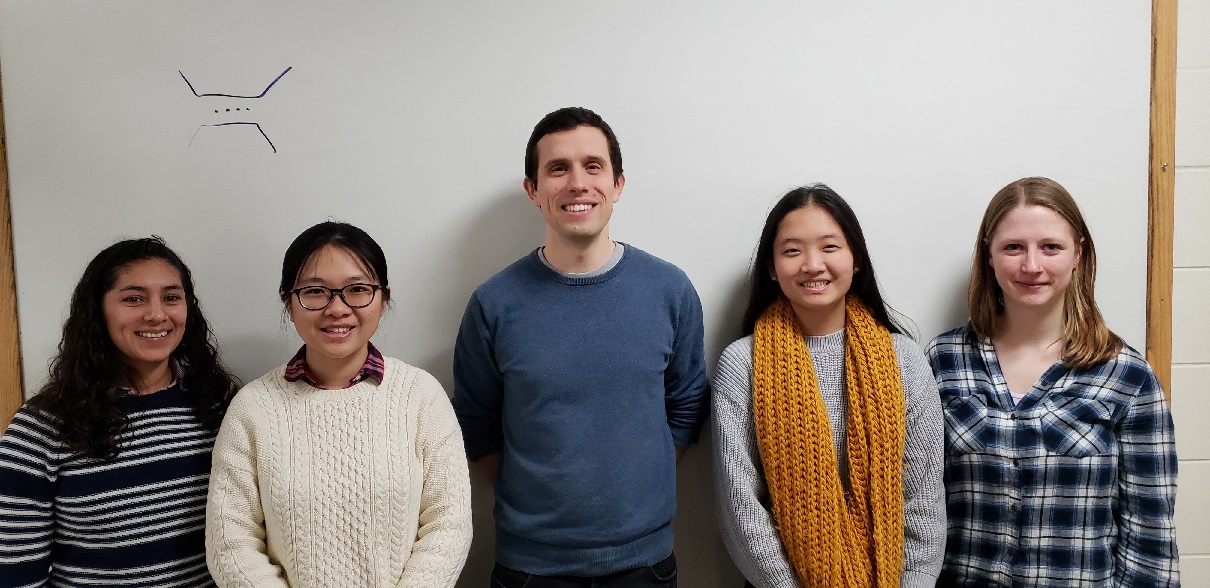 Norbert Linke and his initial research team at the Joint Quantum Institute (UMD, Jan 2019). A strong representation of women is unfortunately still unusual in the STEM realm, and the group is committed to continuously improving at providing an inclusive environment.
Norbert Linke and his initial research team at the Joint Quantum Institute (UMD, Jan 2019). A strong representation of women is unfortunately still unusual in the STEM realm, and the group is committed to continuously improving at providing an inclusive environment.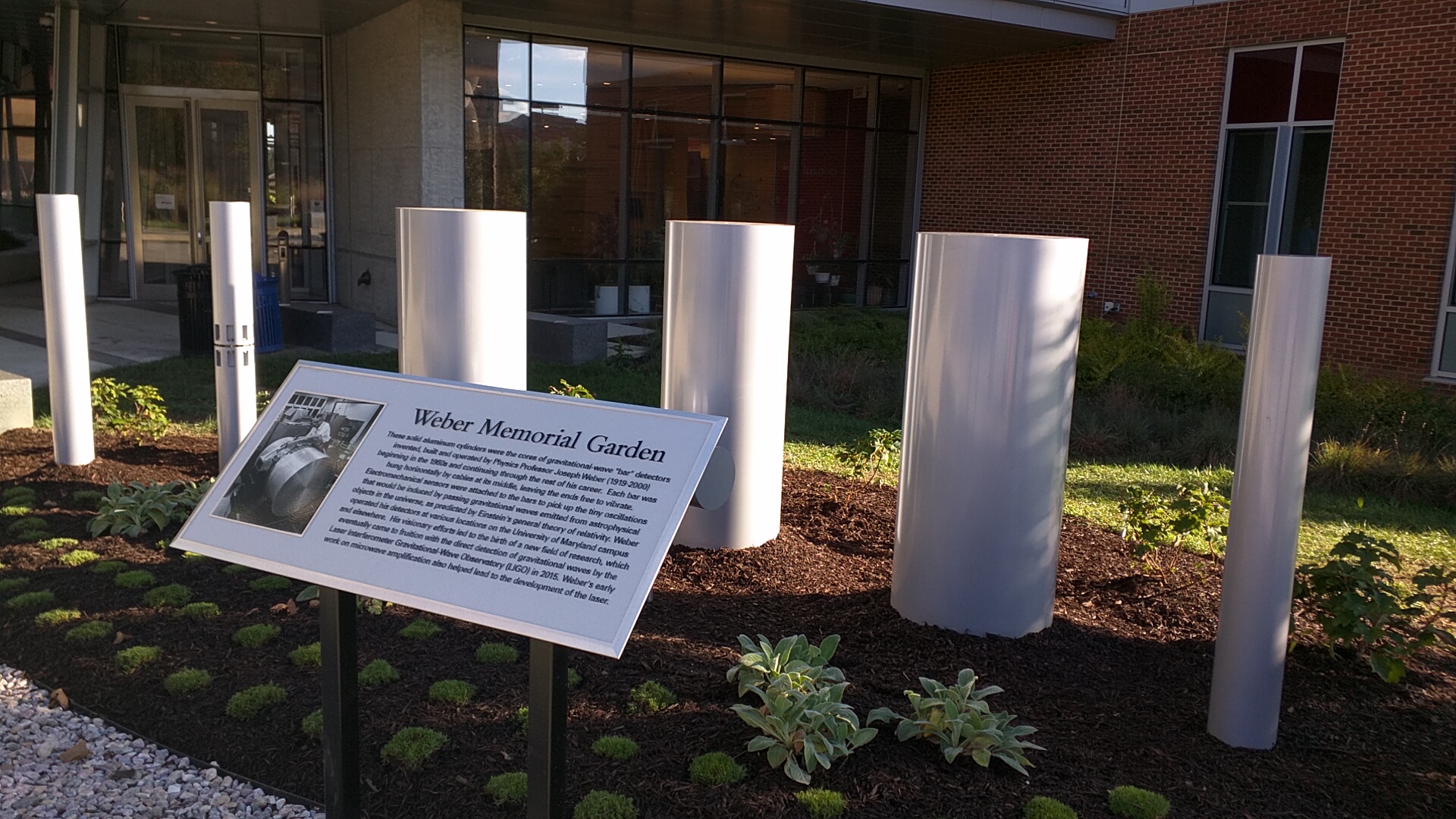 The Department of Physics and College of Mathematical and Natural Sciences held a dedication of the Weber Garden on Tuesday, March 12, 2019, which included remarks by colleagues and friends of Joe Weber and a colloquium by
The Department of Physics and College of Mathematical and Natural Sciences held a dedication of the Weber Garden on Tuesday, March 12, 2019, which included remarks by colleagues and friends of Joe Weber and a colloquium by 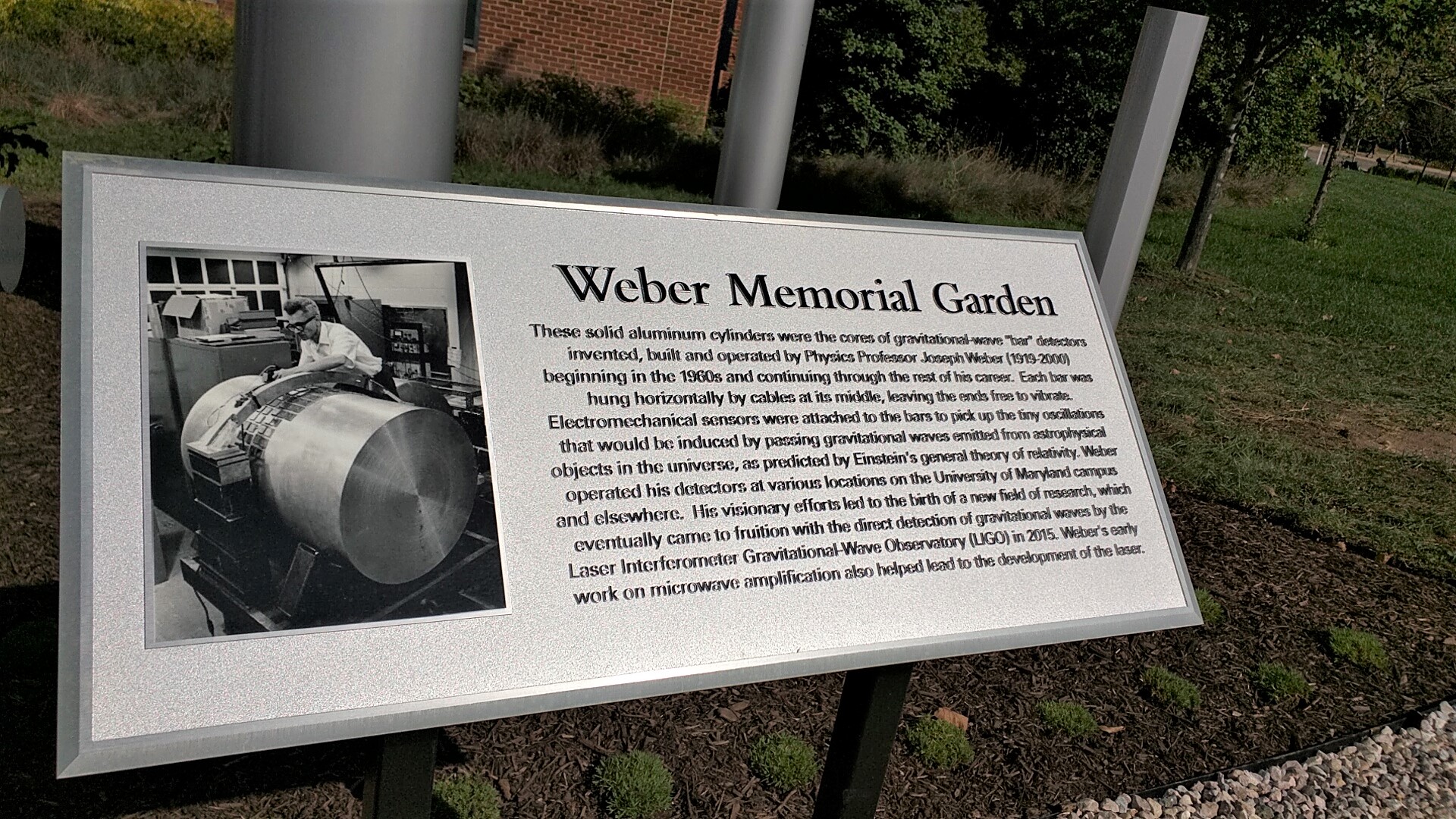
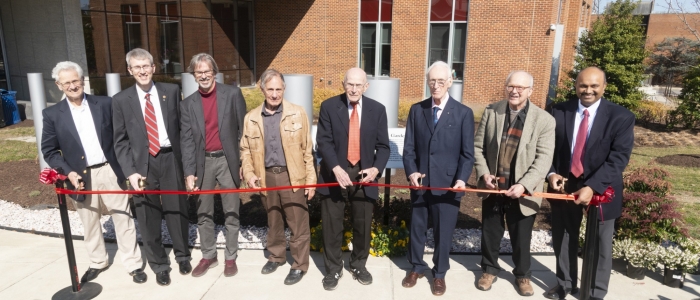






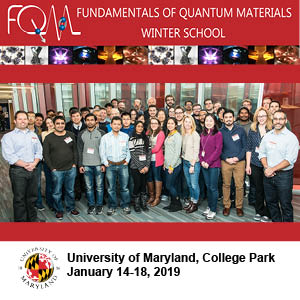 The University of Maryland Department of Physics will host the third annual Fundamentals of Quantum Materials Winter School and Workshop January 14th to the 18th at the University of Maryland.
The University of Maryland Department of Physics will host the third annual Fundamentals of Quantum Materials Winter School and Workshop January 14th to the 18th at the University of Maryland. 